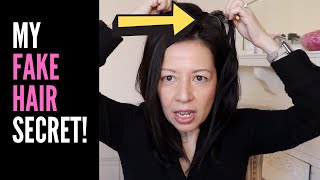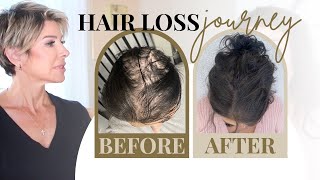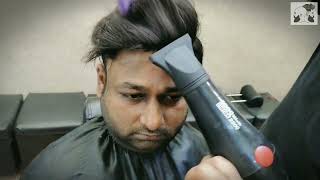Getting To The Root Of Thinning Hair
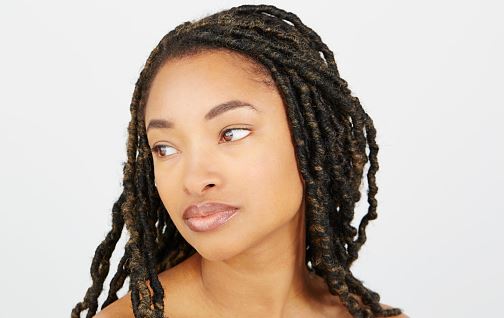 Do you think your hair lacks the density it once had or do you experience more hair shedding than the common 100 to 150 hairs that most experts say is common?
Do you think your hair lacks the density it once had or do you experience more hair shedding than the common 100 to 150 hairs that most experts say is common?
Have you tried without success every hair growth serum, oil, tea rinse and treatment without success? Let’s take a look at this thinning hair issue and get to the root of it once and for all! It is common for many to experience thinning hair as we grow older but for some it may be caused by factors that we can control.
If the thinning is hereditary it is easy to confirm this by asking the female members in your family if they experienced it.
By observing the elders’ hair health, it is fairly easy to discern whether it is inherited or not. Before getting depressed assuming that the future of your hair is doomed also inquire about illnesses and the medication history. If the thinning occurred after an illness the medications taken may have contributed.
This is why it is very important to tell your hairdresser what current medications you take and if you are pregnant prior to getting any chemical services. Both can affect the overall outcome of your hair’s ability to take the chemical treatment process and neglecting to do so may cause significant hair loss.
Health conditions and medications can drastically affect your circulation which can in turn affect the body’s ability to supply the proper nutrients throughout your body.
Smoking and lack of physical activity can limit circulation. Toxins from the smoking are also thought to damage the DNA of the hair follicle, thus impairing growth. Keep in mind that it is the blood that carries both oxygen and nutrients to the body’s cells and organs.
The sudden loss of hair is a definite indicator that there is an issue at hand, whether it is due to stress, disease or an underlying health issue. Let’s take a look at causes for thinning hair that we need to consider prior to attempting to treat the issue.
Excessive Dryness of the hair and scalp can lead to falling hair but the hair’s texture should be noted as well. The use of heat either using blow dryers*, flat irons* and curling irons* can pull the moisture and deplete proteins from the hair causing the hair to become ultimately weak; this leads to breakage and hair shedding.
The change in the hair’s texture is a primary indicator of the hair strands’ internal damage but it can also be an indicator of an underactive thyroid, known as hypothyroidism. A change in texture can appear to be thinning because the hair doesn’t feel as dense as it once felt.
Ultimately, it feels as if there’s less hair, but the thinning is due more to the texture of the hair itself becoming finer and weaker than to individual hairs falling out. A person that may actually have hypothyroidism will experience some other symptoms that accompany the changes in their hair.
These symptoms include overwhelming fatigue although your sleep pattern is the same, sudden weight gain although your diet is primarily the same, slowing of heart rate, feeling chilly or cold and thinning or loss of eyebrows.
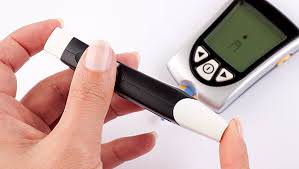 It must be noted that the thinning of the eyebrows appear generally at the outer area so it may appear that you have only a portion of your eyebrow. Diabetes can also cause hair to thin or start to fall out suddenly; some diabetic doctors theorize that sudden hair thinning or hair loss should be considered an early warning sign that diabetes is affecting hormone levels.
It must be noted that the thinning of the eyebrows appear generally at the outer area so it may appear that you have only a portion of your eyebrow. Diabetes can also cause hair to thin or start to fall out suddenly; some diabetic doctors theorize that sudden hair thinning or hair loss should be considered an early warning sign that diabetes is affecting hormone levels.
A number of medications also cause hair loss as a side effect. These include birth control pills, high blood pressure medication, cholesterol lowering medications, along with lithium and Depakote, two of the most common treatments for bipolar disorder. All tricyclic antidepressants, some SSRIs such as Prozac, and levothyroid — used to treat hypothyroidism — can cause thinning hair.
Hormonal changes can also cause hair to thin, which is why both pregnancy and perimenopause are well known for causing hair to fall out, while polycystic ovarian syndrome can also be a culprit.
Always read the accompanying literature provided by your pharmacy when getting your medication orders filled; by knowing that certain medications can have the side effect of hair loss it will enable you to notify your physician so that he or she can try alternative medications that may not have the same side effects.
Your physician can also perform lab tests that can identify the causes of the hair loss whether it is caused by an internal disease or a vitamin deficiency.
Vitamin deficiency is more prominent now than it was many years ago; much of it is due to external changes in our environment. Studies have shown that when we used cast iron* pots and pans that we did not have the higher numbers of anemia seen today.
Iron seeped into the foods we cooked when cast iron* pots were used and it adequately supplied our bodies with iron*. The same is true for vitamin D*; years ago we spent more time outdoors and did not use sunscreen so we were able to get enough vitamin D* from sun exposure.
Another theory is that many suffer from lactose intolerance or have eliminated dairy from our daily diets to limit fat intake. Keep in mind that vitamin D deficiency hasn’t been pinpointed as a cause of hair loss, but research has proven that taking vitamin D helps grow the hair back.
It is imperative that you ask your physician to check both your vitamin D levels and iron* levels to rule out a vitamin deficiency as a cause of your hair loss. A physician can prescribe a safe significantly higher dose of the vitamin needed and provide the necessary follow up needed to maintain your levels.
Please note that with vitamin deficiencies and medication side effects; it takes time to see progress. A balanced diet is crucial for overall heath and healthy hair so a daily multivitamin* is highly recommended!

